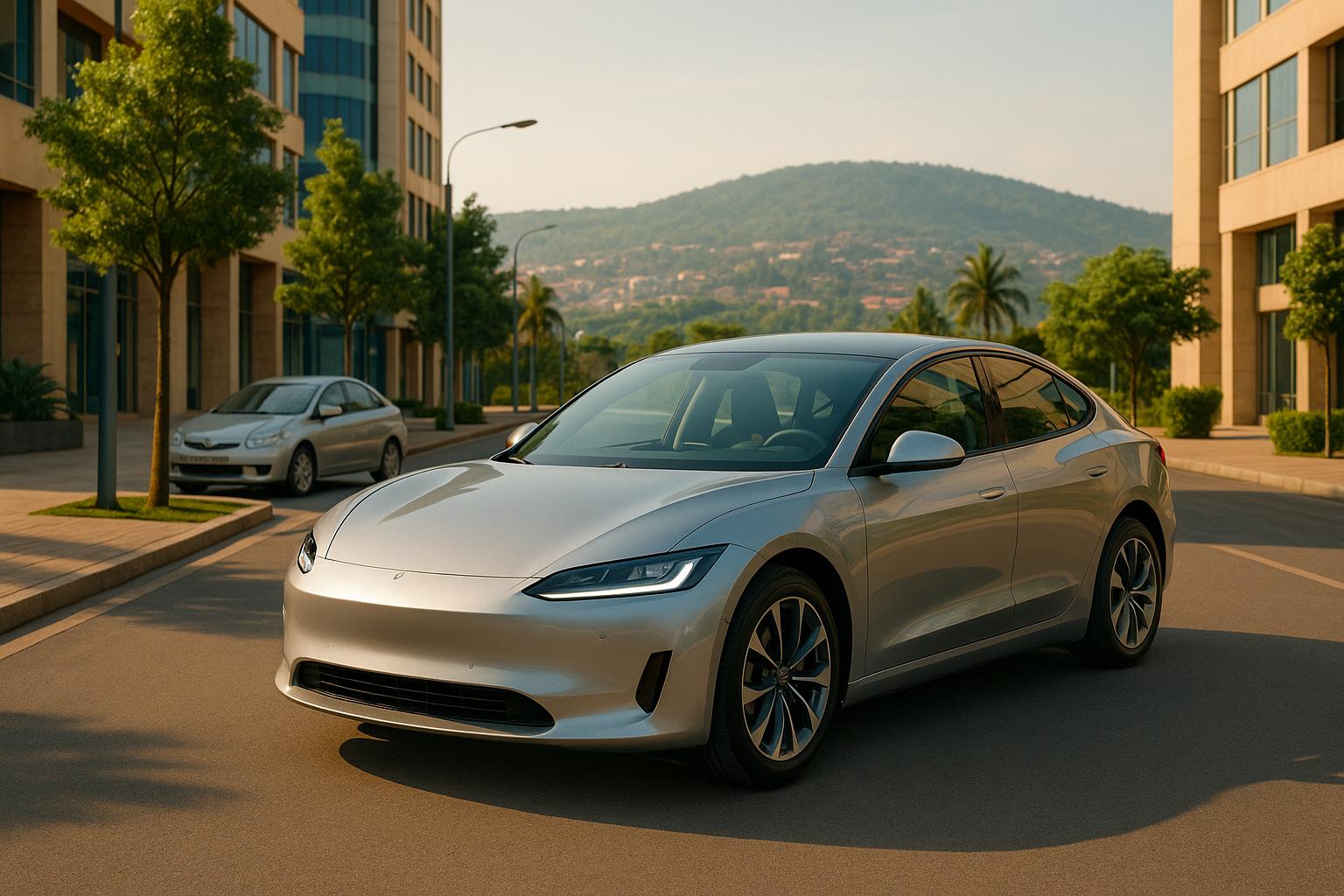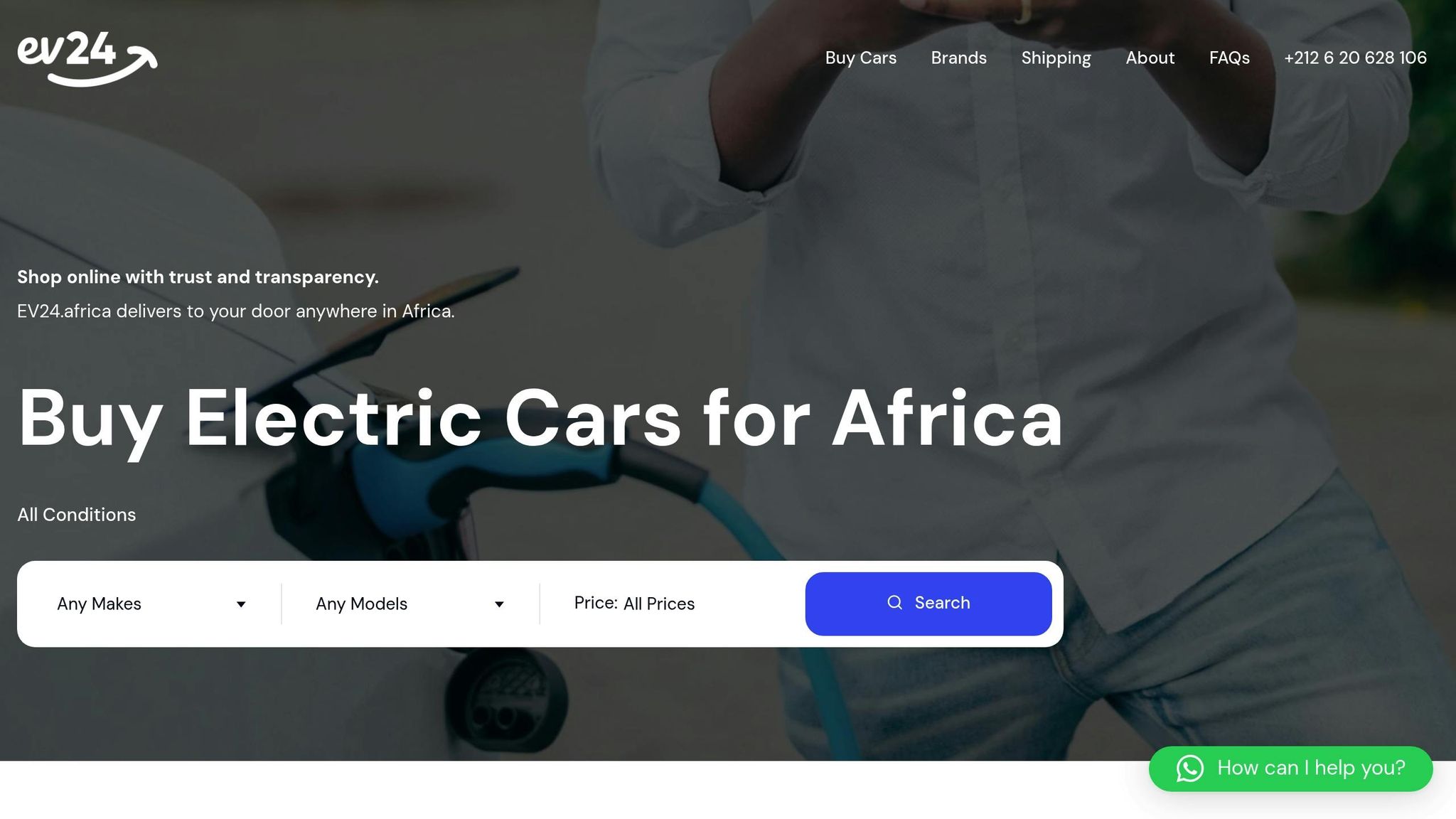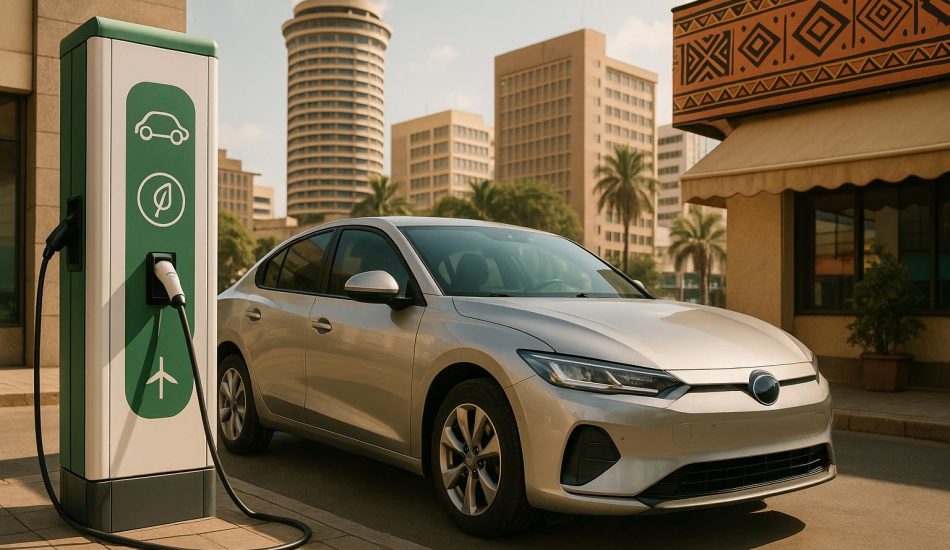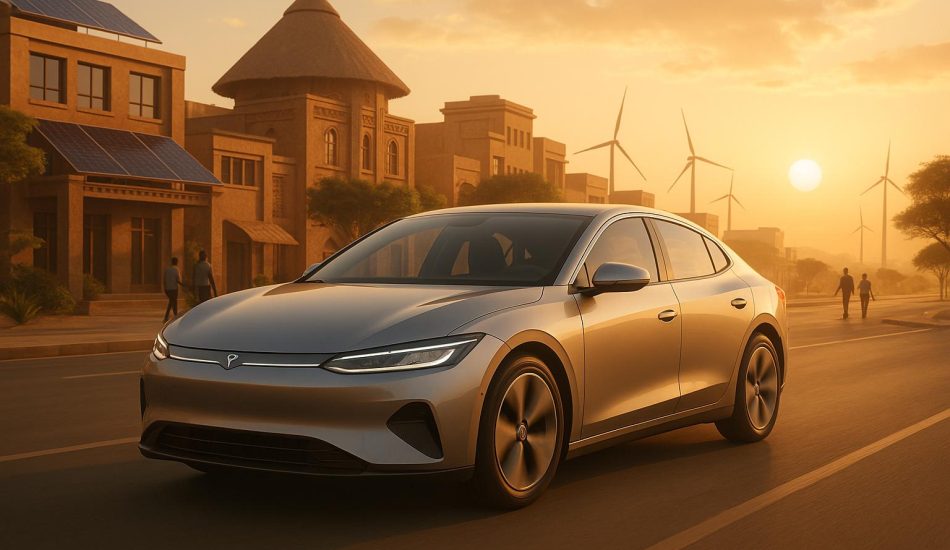
Rwanda is pushing forward with its goal of reducing greenhouse gas emissions by revising tax incentives for electric and hybrid vehicles. Effective July 1, 2025, fully electric vehicles (EVs) now enjoy complete tax exemptions, covering VAT, customs duties, excise duties, and withholding taxes. These exemptions will last until June 30, 2028, making EVs more affordable for consumers.
In contrast, hybrid vehicles now face a tiered tax structure based on age, including VAT, excise duties, and withholding taxes. Newer hybrids (0–3 years) are taxed at 5%, while older ones (over 8 years) face a 15% excise duty. Despite this, hybrids retain a 25% import duty exemption, setting them apart from traditional gas-powered cars.
Key Updates:
- EVs: Full tax exemptions until 2028.
- Hybrids: Age-based excise duties (5–15%), plus VAT and withholding taxes.
- Revenue Impact: Estimated $126.6M boost for 2025/2026 fiscal year.
These changes aim to make EVs the preferred choice, reduce emissions, and encourage private investment in clean transport solutions. Rwanda is also expanding its EV charging infrastructure and offering incentives for e-mobility investors, like reduced corporate tax rates and import duty exemptions. The country is aligning these efforts with its Vision 2050 plan to achieve a low-carbon economy.
The Government of Rwanda has outlined the key provisions of the revised tax policy
Rwanda’s New Tax Incentives for EVs and Hybrids
Rwanda has taken a bold step in its clean energy journey by revamping tax policies to favor fully electric vehicles (EVs) over hybrids. This move, effective July 1, 2025, reflects the government’s commitment to reducing transportation emissions and promoting sustainable energy solutions. The Ministry of Finance and Economic Planning has introduced a range of incentives aimed at making EVs more accessible while implementing new tax structures for hybrid vehicles.
Tax Benefits for Electric Vehicles
Fully electric vehicles now enjoy complete tax exemptions under Rwanda’s updated framework. These exemptions cover VAT, customs duties, excise duties, and withholding taxes, making EVs the most financially attractive option for buyers. Notably, VAT exemptions for EVs and their charging infrastructure will remain in place until June 30, 2028, offering significant savings over the next three years.
To ensure these incentives remain effective, the government has introduced an annual review process that allows adjustments based on market trends and policy outcomes. This approach underlines Rwanda’s long-term commitment to fostering a cleaner transportation sector.
Hybrid Vehicle Tax Structure
Hybrid vehicles, however, are now subject to a tiered tax regime based on their age. While they previously enjoyed broad tax exemptions, hybrids now face VAT, excise duties, and withholding taxes starting July 1, 2025.
The excise duty rates for hybrids are designed to encourage the importation of newer, more efficient models:
| Vehicle Age | Excise Duty Rate |
|---|---|
| 0–3 years old | 5% |
| 3–8 years old | 10% |
| Older than 8 years | 15% |
In addition to excise duties, hybrid vehicles are subject to 18% VAT and a 5% withholding tax. Despite losing their former tax-exempt status, hybrids retain a 25% import duty exemption, which sets them apart from traditional gas-powered vehicles.
"The Ministry of Finance and Economic Planning of the Republic of Rwanda will introduce VAT, withholding tax, and excise duty on hybrid cars, while pure electric cars will be exempt."
These reforms are expected to significantly boost government revenue, with projections estimating an additional $126.6 million (FRW 174.1 billion) for the 2025/2026 fiscal year and up to $256.7 million (FRW 353 billion) by 2029/2030.
Import Requirements and Documentation
To complement these tax policies, the government has introduced stricter documentation requirements for vehicle importers. To qualify for the zero import duty rate, vehicles must have a CIF value of $60,000 or less. Vehicles exceeding this value are not eligible for the exemption.
The Ministry of Finance issued detailed guidance on June 3, 2025, giving importers a month to adapt to the new rules. This guidance emphasized the importance of proper documentation to ensure compliance with the updated policies.
"The Government decided to extend incentives on Electric & Hybrid vehicles and Electric motorcycles to pay an import duty rate of zero."
Additionally, all imported vehicles are subject to annual road levies based on their type. Cars and jeeps incur a fixed fee of $36.36 (FRW 50,000) per year, while larger vehicles like trucks and trailers face higher fees ranging from $72.73 to $109.09 (FRW 100,000 to FRW 150,000).
These reforms signal a dynamic policy environment, with annual reviews expected to fine-tune incentives as market conditions evolve. Businesses and importers should stay updated on communications from the Ministry of Finance for any further changes or procedural updates.
How Tax Changes Affect Consumers and Car Market
Rwanda’s updated tax policies are shaking up the automotive landscape by making electric vehicles more appealing while increasing costs for older hybrids. These changes are influencing consumer choices, dealership strategies, and the overall market for transportation.
Vehicle Pricing and Ownership Costs
The new tax structure puts electric vehicles in a favorable position. Fully electric cars are exempt from several import taxes, and those priced at $60,000 or less benefit from a reduced East African Community Common External Tariff of 25%. Vehicles priced above this threshold enjoy full tax exemptions.
For hybrids, the story is different. Age-based excise duties now apply, with rates set at 5% for hybrids aged 0–3 years, 10% for those 3–8 years old, and 15% for vehicles older than 8 years. On top of that, hybrids are also subject to VAT and withholding taxes, which further increase their overall cost.
The popularity of hybrid and electric vehicles is growing fast. Between 2021 and 2024, Rwanda saw a massive 237-fold increase in hybrid vehicle imports, with over 6,600 hybrids entering the market during that time. Electric car imports have also surged, rising from just 19 vehicles in 2020 to 512 in 2024.
"Hybrids are relatively new and consume less fuel than traditional cars…the high taxes on non-hybrid cars make hybrids more attractive to budget-conscious buyers."
– Beatha Uwizeyimana, Hybrid Car Seller
However, these incentives come at a cost. Over the past four years, the government has forgone approximately $10.36 million (FRW 14 billion) in revenue due to tax breaks. These financial shifts are encouraging dealers and importers to rethink their strategies.
Effects on Dealerships and Vehicle Importers
The changing tax landscape is pushing dealerships and importers to adapt. Many are pivoting toward electric vehicles to make the most of the available incentives. Hybrid vehicles are also a popular choice, offering both lower running costs and environmental advantages. For many Rwandans, hybrids strike a balance, as they combine petrol and electric power – an appealing feature in a country where charging infrastructure is still limited.
The numbers tell the story of this shift. In 2020, Rwanda imported zero hybrid vehicles. By the first nine months of 2024, hybrid imports had reached 3,726, while electric car imports climbed to 218. Dealerships are now navigating more intricate pricing structures, as the age-based excise duty system requires precise documentation of manufacturing dates and vehicle specifications to ensure accurate tax calculations. These adjustments align with Rwanda’s commitment to stricter emissions standards and import policies.
Emissions Standards and Import Rules
Rwanda’s tax changes are closely tied to its environmental goals. By offering full tax exemptions for EVs and imposing higher duties on older hybrids, the government is steering the market toward newer, cleaner vehicles. These policies are part of a broader effort to reduce greenhouse gas emissions from transportation.
"The Government decided to extend incentives on Electric & Hybrid vehicles and Electric motorcycles to pay an import duty rate of zero. This intends to accelerate the transition to Electric Vehicles and reduce greenhouse gas emissions from vehicle transportation. It is reviewed on an annual basis."
– Rwanda Ministry of Finance
Stricter import regulations now require detailed documentation to confirm vehicle age and emissions compliance. In 2023, Rwanda’s total vehicle imports were valued at $52.6 million, up from $33.03 million in 2022, signaling a rising demand for automotive products. With 264,524 registered vehicles nationwide as of July 2020, the potential for adopting cleaner, low-emission vehicles remains significant. These tax policies are a key part of Rwanda’s push toward a greener transportation future.
sbb-itb-99e19e3
Rwanda’s E-Mobility and Clean Transport Plans
Rwanda is making bold moves to reshape its transportation sector, with tax incentives for electric and hybrid vehicles forming part of a larger strategy for cleaner, greener transport. These efforts align with the country’s ambitious goal of achieving carbon neutrality by 2050. By combining Vision 2050, infrastructure expansion, and investor incentives, Rwanda is laying the groundwork for a transformative shift in mobility.
Vision 2050 and NST2 E-Mobility Targets
Rwanda’s Vision 2050 outlines a roadmap to becoming a high-income nation while addressing environmental challenges and climate change. A key part of this vision is reducing carbon emissions, with transportation playing a pivotal role.
The National Strategy for Transformation (NST) is the main framework driving Vision 2050’s goals. E-mobility has become a cornerstone of Rwanda’s green growth initiatives, with electric vehicles expected to significantly reduce emissions. The tax incentives discussed earlier are rooted in these long-term objectives.
"The incentives will also play a role to mobilize investment into the e-mobility sector which has fast emerged as a top sector on demand"
– DG Byiringiro
Rwanda’s strategy isn’t just about promoting electric vehicle imports. The country is positioning itself as a regional leader in e-mobility, attracting investments and expertise that could benefit the entire East African region. This approach ties environmental goals with broader economic development.
EV Charging Network and Infrastructure Growth
Tax breaks alone won’t drive EV adoption – charging infrastructure is essential. The Ministry of Infrastructure (MININFRA) is working on a national master plan to ensure a robust network of EV charging stations. The goal? To make sure no vehicle travels more than 31 miles (50 kilometers) without access to a charging station.
As of August 2024, Rwanda had 24 public charging stations for vehicles, 4 for motorcycle direct chargers, and 49 battery-swapping stations. Geospatial analysis has identified 224 potential charging sites across the country.
Several private companies are stepping up to expand coverage. Kabisa plans to install 38 charging stations by the end of 2024, ensuring stations every 62 miles (100 kilometers). Ampersand operates 32 battery swap stations in Kigali and aims to produce 18,000 batteries by 2025. Meanwhile, Meshpower is piloting solar-powered charging solutions in partnership with Kabisa.
The lack of charging infrastructure has been a barrier for many potential EV buyers. As Srinivas Cheruvu, Managing Director of CFAO Mobility Rwanda, points out:
"People want to buy EVs, but they don’t have the confidence when they consider the limited charging stations available, and especially if they want to travel upcountry, it becomes even more difficult".
To address this, the government offers incentives like rent-free land for charging stations on state-owned properties and electricity tariffs capped at 50% of standard industrial rates. These measures aim to encourage private sector investment in the charging network.
Tax Benefits for E-Mobility Investors
Rwanda is also offering targeted incentives to attract investors into the e-mobility sector. Beyond tax breaks for vehicle imports, companies registered as electric mobility investors benefit from a preferential corporate income tax rate of 15%. For larger investments, manufacturers committing at least $50 million can receive a corporate income tax holiday of up to seven years.
Additional perks are available in Special Economic Zones (SEZs), including reduced or waived import duties for machinery and raw materials. Immigration incentives are also in place to attract skilled professionals needed to support the sector’s growth.
Electric vehicles, spare parts, batteries, and charging equipment are exempt from import duties, VAT, and withholding tax. EV owners enjoy added benefits like green license plates, which come with preferential parking and exemptions from potential congestion charges.
These efforts are already yielding results. IZI Electric and Basigo have secured funding from the Rwanda Green Fund and plan to expand their fleets to 100 buses in the coming years. Currently, IZI Electric operates 7 e-buses, while Basigo has 6. The government’s target is for 20% of the public transport fleet to consist of electric buses by 2030.
Momentum is also building for renewable energy integration. In April 2025, Meshpower installed solar panels at Kabisa EV House, enabling off-grid solar charging. At the launch event, Kabisa Rwanda Managing Director Pophia Muhoza remarked:
"It’s a blessing to see so many customers, supporters, partners, and friends gathered in our new space, an exciting physical representation of the progress we are making – but we’re truly only getting started."
Rwanda’s commitment to e-mobility is clear, with a comprehensive approach that combines infrastructure, tax incentives, and renewable energy to drive sustainable transportation forward.
How EV24.africa Helps Rwanda’s EV Growth

Rwanda is making strides in embracing electric mobility, thanks to updated tax measures and expanded infrastructure. EV24.africa plays a key role in this transition by making it easier for both consumers and businesses to adopt electric vehicles (EVs). The platform connects Rwanda’s ambitious e-mobility goals with the practical needs of buyers, helping them take full advantage of the nation’s tax incentives. This alignment supports Rwanda’s broader efforts to shift toward sustainable transportation.
Wide EV Selection and Clear Pricing
EV24.africa provides a diverse selection of electric vehicles, featuring well-known brands like Tesla, BYD, and Volkswagen. What makes the platform stand out is its transparent pricing. Buyers can see the full costs upfront, including shipping and import fees, with no hidden charges. This level of clarity empowers customers to make informed choices.
The platform serves both individual buyers and businesses looking to upgrade their fleets. By leveraging government tax exemptions on EVs, spare parts, and batteries, businesses can modernize while saving on costs.
Flexible Financing and Pan-African Delivery
Understanding that upfront costs can discourage EV adoption, EV24.africa offers flexible financing options to make EV ownership more accessible. These financing solutions cater to a wide range of customers, from small businesses to individual buyers.
The platform also boasts a delivery network that spans all 54 African countries, including Rwanda. For shipments to Rwanda, vehicles are transported through the Port of Mombasa in Kenya. Customers can choose between various shipping methods, such as RoRo (roll-on/roll-off) or container shipping, and select port-to-port or door-to-door delivery. EV24.africa ensures that all imports meet international standards, simplifying the process for buyers.
Real-Time Updates on Tax Incentives and Import Rules
EV24.africa provides up-to-date information on Rwanda’s EV tax benefits and infrastructure developments. Buyers can learn about specific advantages, such as exemptions from import and excise duties, as well as Value Added Tax (VAT) on EVs, spare parts, and batteries.
The platform goes a step further by handling customs clearance, vehicle registration, and import taxes, ensuring compliance with local regulations. This comprehensive support is especially important, considering that between 2020 and 2024, Rwanda imported 7,172 hybrid and electric vehicles – but only 512 of these were fully electric.
For those ready to embrace Rwanda’s EV incentives, EV24.africa simplifies the process. By requesting a quote, buyers can rely on the platform to manage the entire import process, ensuring they maximize all available tax benefits and regulatory perks.
Conclusion: Moving Toward Cleaner Transportation
Rwanda is taking meaningful steps toward cleaner transportation with its updated e-mobility policies and tax incentives. By exempting fully electric vehicles from VAT until June 30, 2028, and imposing taxes on hybrids, the government is reinforcing its commitment to reducing greenhouse gas emissions. This move aligns with the goals of Rwanda’s National Strategy for Transformation (NST-2), which emphasizes cutting emissions in the transportation sector by 2030.
The Ministry of Finance and Economic Planning has carefully designed these policies to encourage the adoption of cleaner technology while maintaining a balanced approach to revenue generation. Zero import duties on electric and hybrid vehicles are a key part of this strategy, aimed at speeding up the shift to electric transportation and lowering emissions.
With annual policy reviews, Rwanda is ensuring flexibility to adapt to the evolving electric vehicle market. This adaptability is expected to further encourage the transition to fully electric vehicles over time.
Platforms like EV24.africa are instrumental in turning these government incentives into practical opportunities for consumers and businesses. They simplify the process by offering transparent pricing, flexible financing options, and comprehensive import support. This makes it easier for individuals and companies to take advantage of the incentives, bridging the gap between policy and real-world application.
Rwanda’s approach highlights how smart fiscal policies can drive both environmental progress and economic growth. As the nation continues to expand its charging infrastructure and refine regulations, these tax incentives provide a solid foundation for advancing clean transportation across East Africa. Together, these efforts push Rwanda closer to its vision of a low-carbon future.
FAQs
How do Rwanda’s new tax incentives affect the cost and popularity of electric vehicles compared to hybrids?
Rwanda has introduced updated tax incentives aimed at making electric vehicles (EVs) far more affordable and appealing compared to hybrid vehicles. EVs now enjoy full exemptions from import duties, VAT, and excise taxes. This significant tax relief slashes their cost, making them a more budget-friendly and attractive option for buyers.
On the other hand, hybrid vehicles still benefit from a 25% import duty exemption, but they now face excise taxes ranging between 5% and 15%, depending on their age. Additionally, VAT has been reinstated for hybrids, further increasing their overall price. These adjustments tilt the financial scales in favor of EVs.
By focusing on reducing EV costs, Rwanda is pushing for greater adoption of fully electric vehicles. This move aligns with the country’s goals for sustainability and clean energy while making EVs a more practical option for both individuals and businesses.
What are the new tax benefits for electric and hybrid vehicles in Rwanda, and how do they compare?
Rwanda’s revised tax policy brings significant incentives for electric vehicles (EVs), making them fully tax-free. This means no VAT, import duties, excise duties, or withholding taxes apply to EVs. On the other hand, hybrid vehicles now receive a 25% import duty exemption but are subject to an excise tax ranging from 5% to 15%, determined by the vehicle’s age.
The key takeaway: EVs benefit from complete tax exemptions to promote their use, while hybrids face a tiered excise tax system, marking a clear push toward fully electric options.
What is Rwanda doing to promote electric vehicles, and what incentives are available for investors in e-mobility?
Rwanda is making bold moves to expand the use of electric vehicles (EVs) and boost e-mobility. The government has rolled out new tax incentives aimed at lowering the barriers to EV adoption. These include zero VAT on EV imports, exemptions on import and excise duties for EV parts, and offering rent-free land for the construction of charging stations.
To attract more investment, the country provides a reduced corporate income tax rate of 15% for e-mobility businesses, along with tax breaks on infrastructure tied to EVs. On top of that, Rwanda is working on building a national EV charging network, ensuring that stations are conveniently located no more than 31 miles (50 kilometers) apart. These initiatives not only reflect Rwanda’s push for clean energy and sustainability but also open doors for both local and global investors to get involved.




